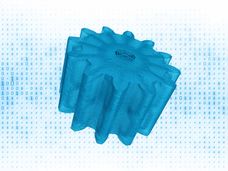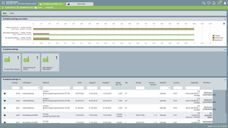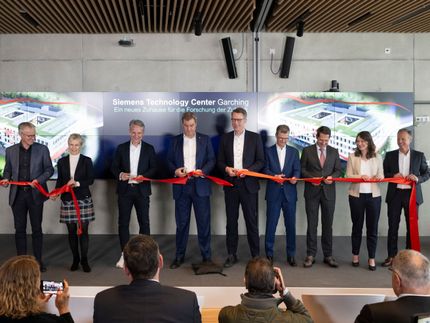labfolder signs agreement with Max Planck Society
Contract provides up to 11,000 Max Planck scientists access to use labfolder for digital laboratory data management
labfolder GmbH and the Max Planck Society announced a licensing agreement to provide up to 11,000 Max Planck scientists with labfolder's laboratory data management digital platform. This is the first time that a tool for digital laboratory data management is being provided across an entire research organization for scientists in all scientific disciplines ranging from physics, chemistry, life sciences and humanities.
labfolder's next generation laboratory data management tool enables scientists from all disciplines to record, integrate and manage scientific data from different sources including tablets and devices, with simple compliance to industry standards, protocols and regulations. labfolder speeds up research and development, facilitates data analyses and collaboration of scientists and teams on all continents. labfolder can be used either on a central server or on a local server, which will be installed on the premises of the institutes. The labfolder digital platform is fully flexible and can be customized by the Max Planck scientists themselves.
"This agreement with the Max Planck Society, one of the most successful and distinguished scientific organizations in the world, is an important milestone for labfolder," stated Dr. Simon Bungers, CEO of labfolder. "The deal demonstrates that we reliably deliver value to scientists in all disciplines from the individual up to large organizations with thousands of scientists. We are proud that the Max Planck Society is committed to a long-term collaboration, in which together we will develop new features and services for scientists."
The classical paper-bound laboratory notebook is still the most commonly used tool for data management for many scientists. This continuous documentation is the key to understanding experiments and their underlying hypotheses as well as to interpret recorded data in a meaningful way. "There is an enormous demand for scientists within the Max Planck Society for switching to digital lab notebooks," stated Dr. Frank Sander, General Manager of the Max Planck Digital Library, the central unit for the provision and development of information and data management services in the Max Planck Society. "We are very happy to provide our scientists via labfolder with a solution which helps them to efficiently handle their daily data management tasks. The flexibility of the system allows the use of labfolder across the different research disciplines in the Max Planck Society and facilitates the exchange between scientists and with scientific data tools and services."
Most laboratories still use a mixture of paper notebooks, locally stored files, and file servers for data management. Data management across storage media makes the compliant documentation, retrieval, and re-use of research data notoriously difficult and sometimes even impossible. Additionally, the amount of data generated in research and healthcare grows exponentially. Thus, research organizations, enterprises, and policy makers see further optimization of data management in research and in clinics as a crucial next step.
Other news from the department science
These products might interest you

Limsophy by AAC Infotray
Optimise your laboratory processes with Limsophy LIMS
Seamless integration and process optimisation in laboratory data management

LAUDA.LIVE by LAUDA
LAUDA.LIVE - The digital platform for your device management
Comprehensive fleet management options for every LAUDA device - with and without IoT connectivity

ZEISS ZEN core by Carl Zeiss
ZEISS ZEN core - Your Software suite for connected microscopy in laboratory and production
The comprehensive solution for imaging, segmentation, data storage and analysis

ERP-Software GUS-OS Suite by GUS
Holistic ERP solution for companies in the process industry
Integrate all departments for seamless collaboration

Get the chemical industry in your inbox
By submitting this form you agree that LUMITOS AG will send you the newsletter(s) selected above by email. Your data will not be passed on to third parties. Your data will be stored and processed in accordance with our data protection regulations. LUMITOS may contact you by email for the purpose of advertising or market and opinion surveys. You can revoke your consent at any time without giving reasons to LUMITOS AG, Ernst-Augustin-Str. 2, 12489 Berlin, Germany or by e-mail at revoke@lumitos.com with effect for the future. In addition, each email contains a link to unsubscribe from the corresponding newsletter.
Most read news
More news from our other portals
Last viewed contents
Museum_of_Neon_Art
Johann_Rudolf_Glauber




























































